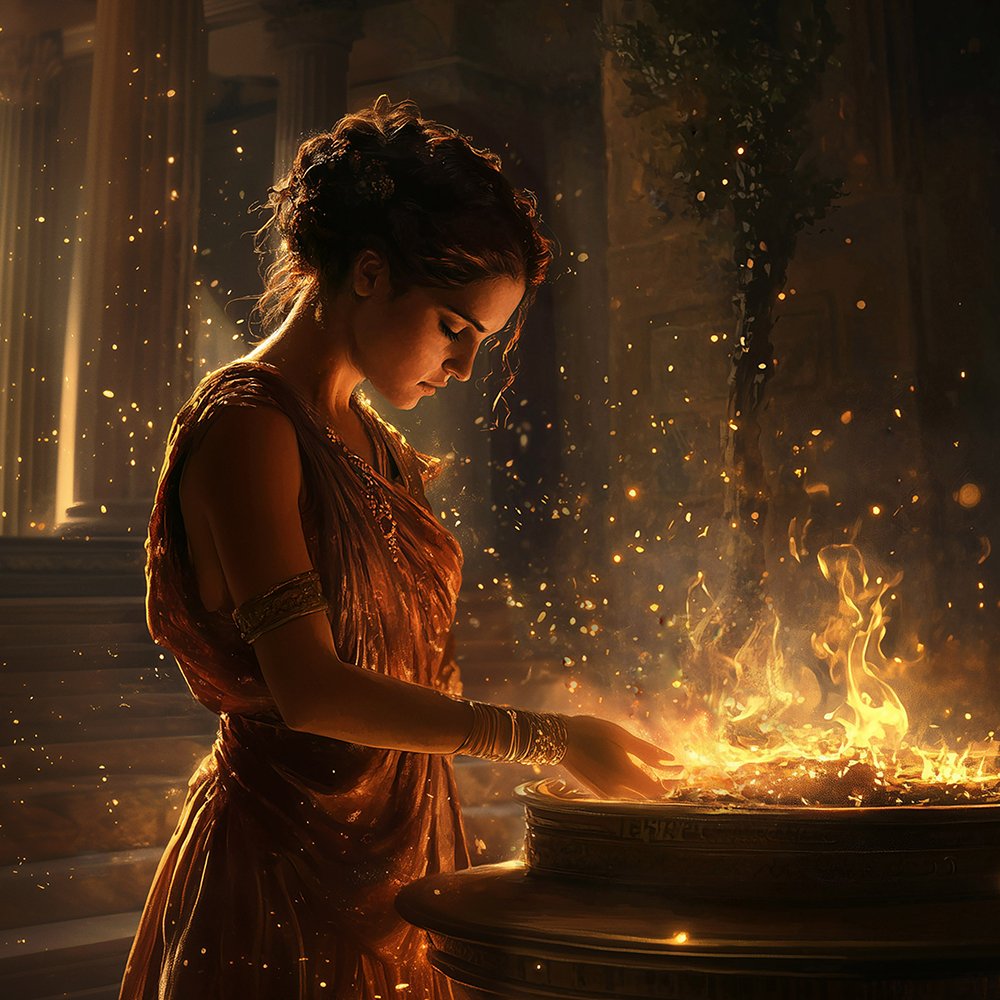Sekhmet
My rekindled love for mythology was ignited by Sekhmet, the ancient Egyptian goddess of the scorching desert sun, plague, chaos, war, and healing. Her dual nature reflects the balance between creation and destruction, making her a profound figure in both ancient rituals and modern interpretations.
Hestia/Vesta
Hestia, the gentle guardian of the hearth, embodies the sacred flame that warms both home and spirit. Her quiet strength reminds us of the power in stillness and the importance of tending to our inner sanctuaries with devotion and care.
Hemera
Hemera, the lesser-known Greek goddess of day, symbolizes the transition from darkness to light, heralding the dawn and awakening life each morning. As the daughter of Nyx and Erebus, Hemera plays a crucial role in Greek cosmogony, embodying light, hope, and renewal. Though her myths are few, her significance lies in what she represents—prosperity, vitality, and the enduring power of light over darkness. Hemera’s timeless presence continues to inspire, reminding us of the boundless potential each new day holds and the delicate balance between life and death.
Athena
Athena, the revered goddess of wisdom, intelligence, and war, holds a significant place in ancient mythology. Known for her strategic mind and unwavering commitment to justice, she was often depicted in her warrior's armor, accompanied by an owl, symbolizing wisdom. Athena's unique birth story, emerging fully grown from Zeus's head, highlights her profound connection to intellect and rational thought. Her influence extended beyond warfare, as she was also a patron of the arts and crafts, embodying the ideals of wisdom, creativity, and civilization.





